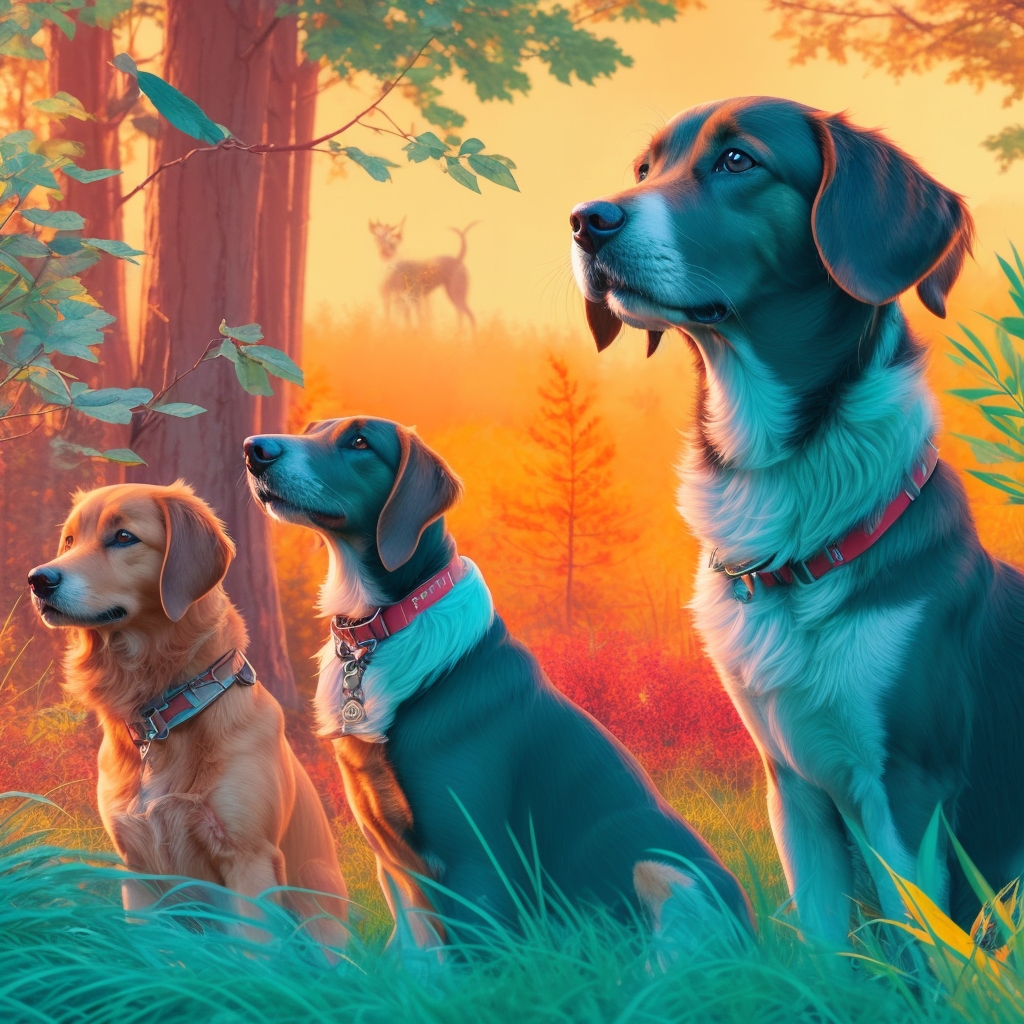Hunting dogs, often seen as loyal companions for outdoor enthusiasts, possess unique behavioral characteristics that set them apart from other canine breeds. Their training and socialization are essential for them to thrive both in their role as hunters and in their daily lives. In this article, we’ll delve into the behavior of hunting dogs, examining their natural instincts, their socialization, and practical case studies and best practices to facilitate their integration into human life.
Natural Instincts of Hunting Dogs
The Predatory Instinct
One of the most striking behaviors of hunting dogs is their predatory instinct. This instinct is deeply ingrained in their DNA and manifests through a set of typical behaviors:
- Tracking: Hunting dogs are often trained to follow scent trails. They can spend hours sniffing the ground, detecting traces left by prey.
- Chasing: When in a natural environment, these dogs may exhibit chasing behavior when they spot an animal, even if they haven’t been specifically trained for it.
The Need for Teamwork
Hunting dogs also have a strong teamwork instinct, especially when used for group hunting. Their behavior can be influenced by group dynamics:
- Communication: Hunting dogs often communicate through barks, vocalizations, and body signals to coordinate their actions during a hunt.
- Rivalry and Hierarchy: In a group of dogs, dominance behaviors can emerge, influencing interactions between the animals.
Socialization and Training of Hunting Dogs
Importance of Socialization
Socialization is crucial for hunting dogs as it helps them adapt to human life and other animals. Adequate socialization can reduce undesirable behaviors such as aggression or fear.
- Varied Exposures: Exposing dogs to different people, animals, and environments from a young age helps them develop self-confidence and better handle new situations.
- Interaction with Other Dogs: Allowing hunting dogs to play with other dogs can strengthen their social skills and overall behavior.
Appropriate Training Techniques
Training hunting dogs requires a specific approach, often focused on positive reinforcement. Here are some effective techniques:
- Positive Reinforcement: Using rewards such as treats or praise when a dog performs a desired behavior is essential to motivate them.
- Basic Commands: Learning basic commands such as “sit,” “stay,” and “heel” is fundamental for establishing clear communication between the dog and its owner.
Concrete Examples and Use Cases
Case Study: A Hunting Dog in an Urban Environment
Let’s take the example of Max, a German Shorthaired Pointer primarily raised for hunting. After being adopted by a family living in an urban area, his owners quickly noticed undesirable behaviors such as excessive barking and attempts to escape when he saw other animals.
Solutions Implemented:
- Socialization: The owners regularly took Max to dog parks where he could interact with other animals. This significantly reduced his anxiety around other dogs.
- Urban Training: They also hired a dog trainer to work on specific skills related to urban life, such as recall and leash walking.
Another Case: Hunting Dog and Children
Another example involves a Labrador Retriever used for duck hunting. His family had young children, and it was essential to ensure the children’s safety while allowing the dog to thrive.
Approach Adopted:
- Educating Children: Parents taught the children how to interact properly with the dog, respecting its space and avoiding abrupt movements.
- Shared Activities: They implemented family activities that included the dog, such as nature walks, allowing the Labrador to expend energy while strengthening family bonds.
Key Points and Best Practices
- Respect Natural Instincts: Understanding and respecting the predatory instinct of hunting dogs is crucial for their training.
- Early Socialization: Initiating early socialization helps prevent problematic behaviors in adulthood.
- Use Positive Reinforcement: Encouraging good actions through rewards builds trust and understanding.
- Continuous Education: Training should not stop after the initial stages. Hunting dogs require ongoing training to adapt to various environments.
- Create Enriching Activities: Providing games and activities that mentally and physically stimulate the dog is essential for its well-being.
Conclusion
Understanding the behavior of hunting dogs is fundamental for their training and integration into family life. By respecting their natural instincts and implementing appropriate socialization and training techniques, it’s possible to create a harmonious environment where the dog can thrive. Let’s not forget that every dog is an individual with unique needs; the key to success lies in observation, patience, and commitment. By adopting these best practices, hunting dog owners can not only improve their companions’ behavior but also strengthen the bonds that unite them.







